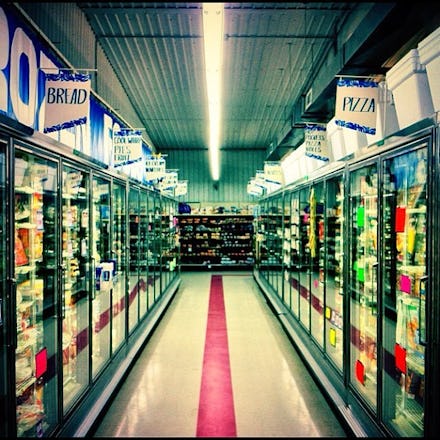The Scary Way Drug Gangs Are Infiltrating Our Supermarkets

Gang activity in the supermarket? You may be surprised to find that, especially in Europe, this phenomenon exists. Drug gangs are now peddling counterfeit food products to rake in profits. The relatively new market has boomed recently, as drug lords seek new, less regulated economies. As it stands now, penalties for pushing fake rice pale in comparison to those of the drug trade — for the gangs.
Fake food items could be causing sickness, long-term conditions or even death for food shoppers. Products seized in the UK were found to include cheaper peanut powder instead of almond flower, which could prove deadly for a person with peanut-specific allergies. Children's sweets were made with known carcinogen red dye Rhodamine B. Tea claiming to be "slimming" was found to contain prescription obesity medication (13 times the recommended dose).
Products labeled as fish or crab were using fake or untraceable meat ingredients, reminiscent of China's meat scandal where a gang made over $1 million passing off fox, mink and rat meat as mutton or beef.
Image Credit: AP. An inspector holds a meat product that has a fake label.
Vodka and wine enthusiasts, beware. Over 17,000 liters of fake vodka were uncovered — many of which included cleaning fluids or antifreeze. The British government even issued a warning this past holiday season to warn consumers of the consequences (blindness, death and stomach problems) these fake drinks can cause. A recent bust uncovered a massive fake wine business in the U.S.
False labeling, diluting products and selling completely fake products — these illegal activities pay big bucks. The National Center for Food Protection and Defense estimates that Americans pay $10 billion to $15 billion annually for fake food. Chinese honey frauds alone have cost the U.S. honey industry billions in profits.
Mike Ellis, the head of the Food Standards Agency (FSA), Interpol and Europol discusses how high-tech the fake food business is becoming.
"In Qatar we found a re-labeling machine, which was designed with the illegal purpose of changing expiry dates on drinks labels. Then, we found one exactly the same in Africa," Ellis said in an interview with the Sunday Times.
Will the world see more "food busts" in the coming years? Government officials, catching wind of the substandard food products, are encouraging increased funding to study the faux food trade and work with other security organizations to crack down on food criminals.